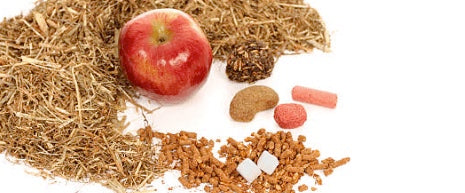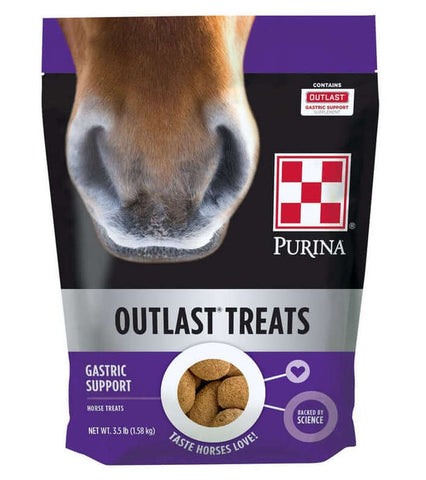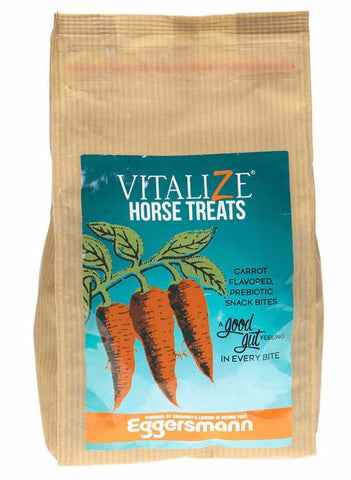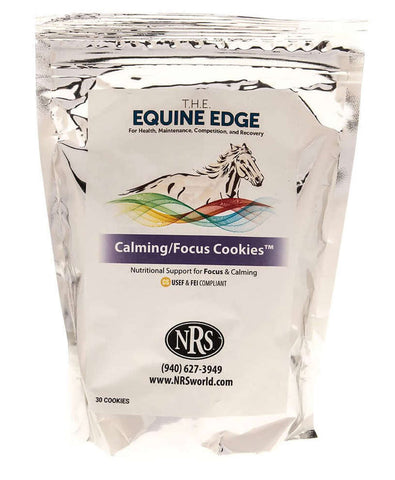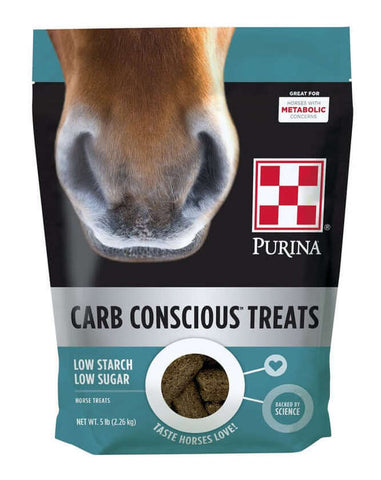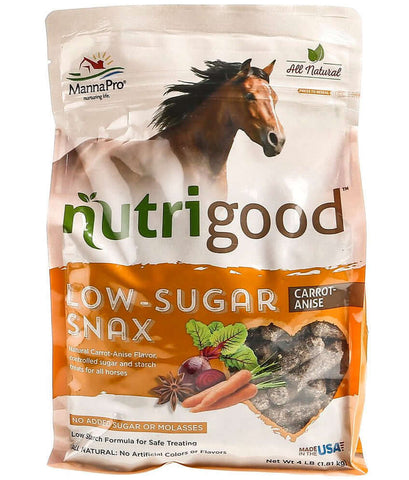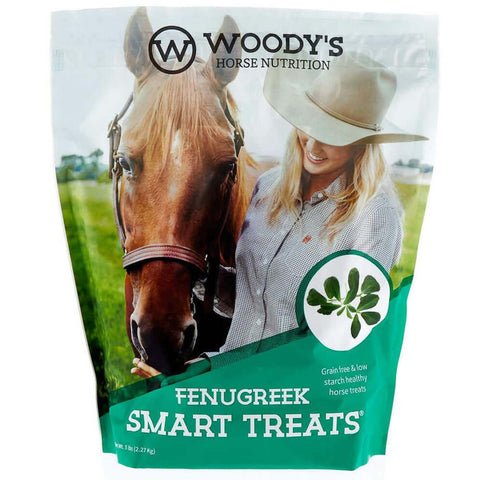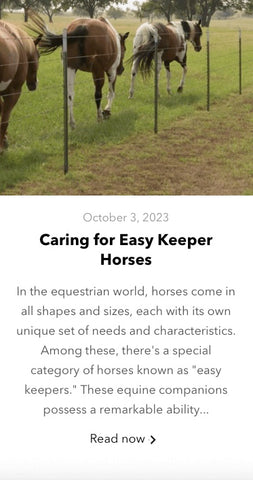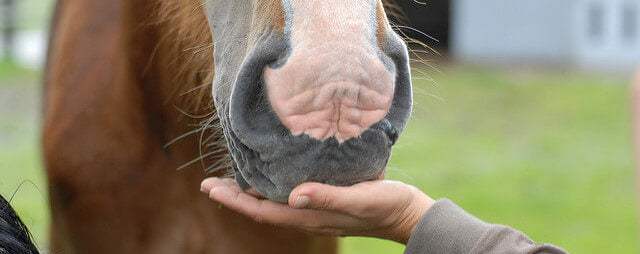
Horse Treats : A Guide to Rewarding Your Horse
As horse owners and enthusiasts, we understand the joy and satisfaction that comes from nurturing a strong bond with our equine companions. Feeding treats to your horse can be a powerful tool to reinforce positive behavior, foster trust, and enhance your overall relationship. While it's crucial to approach treat feeding with care and moderation, the act of offering a well-deserved treat can create moments of connection and understanding between you and your horse. Through positive reinforcement and the pleasure of a tasty morsel, you can shape behavior, encourage enthusiasm during training sessions, and establish a deeper sense of mutual respect. In this blog, we'll not only highlight the advantages of treating your horse but also provide insights into selecting the right treats, understanding portion control, and addressing potential concerns.
The Benefits to Feeding Treats
Positive Reinforcement : Treats can be used as a form of positive reinforcement during training sessions. Horses quickly learn to associate treats with desired behavior, making it easier to teach them new skills and reinforce good behavior.
Bonding : Offering treats to your horse can help strengthen the bond between you and your horse. It can create a positive association with your presence and develop trust and affection.
Motivation and Enthusiasm : Treats can serve as a motivation for your horse to work and engage in activities. The anticipation of a treat can make training sessions more enjoyable and increase your horse's enthusiasm for learning.
Variety and Stimulation : Adding treats to your horse's diet can provide variety and mental stimulation. It can be especially beneficial for horses on strict feeding regimens or those with limited access to grazing, as treats offer a different taste and texture.
Health Benefits : Some treats are designed to provide additional nutritional benefits. For example, certain treats may contain vitamins, minerals, or supplements that support your horse's overall health, such as joint health or digestive function.
Distraction and Stress Relief : Treats can be used as a distraction or a source of comfort during stressful situations, such as vet visits or trailering. They can help redirect your horse's attention and provide a positive experience in potentially anxiety-inducing situations.
Shop all Horse Treats
While treats can be beneficial, it's important to keep a few things in mind. Moderation is key to prevent overfeeding and weight gain. Additionally, always be aware of any dietary restrictions, such as allergies or sensitivities, that your horse may have. Consulting with a veterinarian or equine nutritionist can help you make informed decisions about treat selection and feeding practices for your specific horse.
Types of Horse Treats
ALL NATURAL : Carrots and Apples! These are classic and popular options. They are generally well-tolerated by horses and provide natural sweetness. Remember to cut them into small, bite-sized pieces to prevent choking.
COMMERCIAL : There are numerous commercially available horse treats specifically formulated for equine consumption. These treats often come in various flavors, shapes, and sizes. Look for reputable brands that use high-quality ingredients and avoid treats that contain excessive amounts of sugar or fillers.
PEPPERMINTS and CANDY CANES : Many horses enjoy the taste of peppermints. However, these should be given sparingly due to their high sugar content. Opt for sugar-free options when possible. Avoid feeding any candy that contains chocolate or xylitol, as these can be toxic to horses. If you’re not sold on actual peppermint candies try a small wafer cookie thats peppermint flavored like Manna Pro’s Peppermint Wafers - plus over 700 treats comes in each 20lb bag!
HERBAL: Some treats incorporate herbs, such as chamomile, mint, or rosemary, which can provide additional health benefits. These treats may offer digestive support like Purina’s Outlast Horse Treats and Vitalize’s Carrot Horse Treats or relaxation properties like Equine Edge’s Calm and Focus Cookies.
HOMEMADE : You can also make your own horse treats using ingredients like oats, molasses, flaxseed, or bran. There are many recipes available online that allow you to control the ingredients and tailor them to your horse's preferences. Just be cautious with the quantity of treats you provide, as homemade treats can vary in nutritional content.
To Feed or Not to Feed? That is the Question
There are certain situations when it is not advisable to feed treats to your horse. Here are some instances when you should avoid giving treats:
During Training Sessions : While treats can be used as positive reinforcement during training, it's important to establish clear boundaries. Avoid using treats excessively or at inappropriate times during training, as it can create dependency or distract your horse from learning and following commands.
Behavioral Issues : If your horse has behavioral problems, such as biting or nipping, feeding treats can inadvertently reinforce these negative behaviors. It's best to address and correct the behavioral issues before reintroducing treats as rewards.
Health Conditions : If your horse has specific health conditions, such as metabolic disorders like Equine Metabolic Syndrome (EMS) or Cushing's disease, it may be necessary to restrict or carefully select treats. These conditions often require controlled diets with limited sugar and carbohydrates.
Cushings Disease is a hormonal disorder that commonly affects older horses. It is caused by an abnormality in the pituitary gland, which is located at the base of the brain. Dietary adjustments, such as low-sugar and low-starch diets, is highly recommended to manage weight and prevent laminitis. If you suspect your horse may have Cushing's disease, it is important to consult with a veterinarian for an accurate diagnosis and appropriate treatment plan.
Allergies : Some horses may have allergies or sensitivities to certain ingredients commonly found in treats, such as wheat, soy, or artificial additives. If your horse has known allergies or sensitivities, carefully read the ingredient labels of commercial treats or avoid treats with potential allergens altogether.
Weight Management : If your horse is overweight or prone to weight gain, treats should be given sparingly or as part of a controlled diet. Excessive treat consumption can contribute to weight gain and related health issues.
Homemade Oat and Apple Horse Treats
INGREDIENTS : 2 cups of rolled oats | 1 cup applesauce | 1/4 cup molasses | 1/4 cup grated carrots | 1/4 cup chopped apples | 1/4 cup flour
INSTRUCTIONS :
-
Preheat your oven to 350°F (175°C) and line a baking sheet with parchment paper.
-
In a mixing bowl, combine rolled oats, applesauce, molasses, grated carrots, and chopped apples. Stir well until the ingredients are thoroughly mixed.
-
If the mixture seems too wet, you can add flour gradually to achieve a dough-like consistency. This step is optional and depends on the moisture content of your ingredients.
-
Take small portions of the mixture and roll them into bite-sized balls or use a cookie cutter to shape them into desired shapes.
-
Place the treats onto the lined baking sheet, leaving a little space between each treat.
-
Bake in the preheated oven for approximately 15-20 minutes, or until the treats are firm and slightly golden.
-
Remove from the oven and let the treats cool completely on a wire rack. Once cooled, the treats are ready to be enjoyed by your horse! Store them in an airtight container to maintain freshness.
Remember to feed these treats in moderation and adjust the ingredients based on your horse's dietary needs or any known allergies. Feel free to experiment with different flavors or add horse-safe herbs like mint or rosemary to customize the treats to your horse's preferences. Enjoy making these homemade treats for your equine friend!
Related Articles

